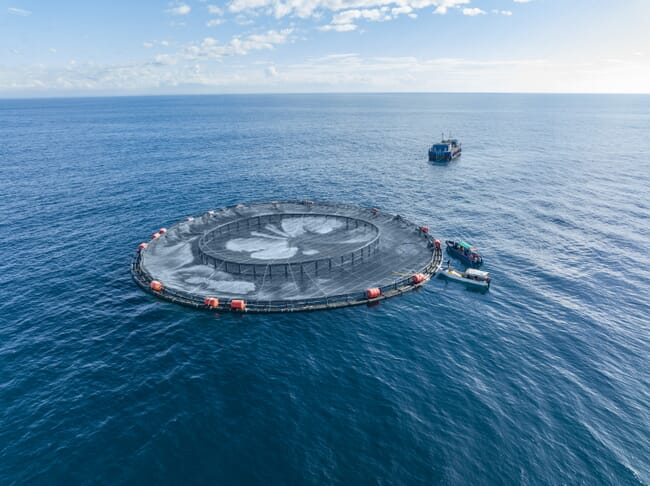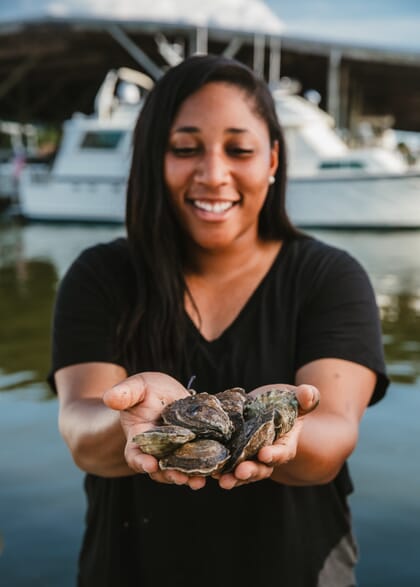
Advocates are urging the US aquaculture industry to embrace offshore farming © Forever Oceans
The newly-launched Coalition for Sustainable Aquaculture (CSA) is dedicated to charting a responsible path forward for ocean farming in US offshore waters by advocating for:
- A strong regulatory framework to ensure offshore aquaculture is safe, sustainable, equitable and science-based
- New opportunities for historically disadvantaged and excluded communities to access and benefit from the new industry
- Government studies and on-the-water pilot programmes to address knowledge gaps and determine best practices
CSA is launching with more than twenty leading chefs from around the country and ten high-profile founding member organisations: the Environmental Defense Fund (EDF), Minorities in Aquaculture, The Marine Mammal Center, Seafood and Gender Equality (SAGE), Lowcountry Oyster Co, Blue Dot Sea Farms, AquaSpark, Monterey Bay Seaweeds, Neptune Sustainable Ocean Snacks and Postelsia.
“Americans want more sustainable seafood on their plates. That means that one of our primary solutions is to grow it here and do it right,” said Andrew Zimmern, an award-winning chef and founding CSA member. “I know first-hand that when it comes to aquaculture, consumers increasingly want to know that the fish on their plate is grown sustainably and with rigorous standards, and we’re coming together to forge a movement to make it possible.”
As the demand for seafood grows globally, the market in the US for sustainable, local seafood is higher than ever. Yet, the US imports over 85 percent of its seafood—and half of that is farmed.

The US imports over 85 percent of its seafood—and half of that is farmed
Founding CSA member Imani Black, CEO & founder of Minorities in Aquaculture, said, “by committing to responsible, homegrown aquaculture that includes offshore farming, we can build a sustainable supply chain for everyone, all while growing equitable and inclusive jobs. That means more Americans can have sustainably sourced, nutritious seafood in their local grocery stores, restaurants, farmers markets and in their homes.”
While Americans eat plenty of seafood from abroad, some overseas aquaculture operations lack the rigorous environmental and safety standards we have in the US, leading to the exporting of our environmental and ethical footprints. The Magnuson-Stevens Act set a global example for wild stock fisheries reform. The US has the opportunity to lead and build a science-backed aquaculture industry founded in sustainable, equitable practices that creates jobs and contributes to food security alongside well-managed traditional fisheries.
Learn more about the Coalition for Sustainable Aquaculture here.




